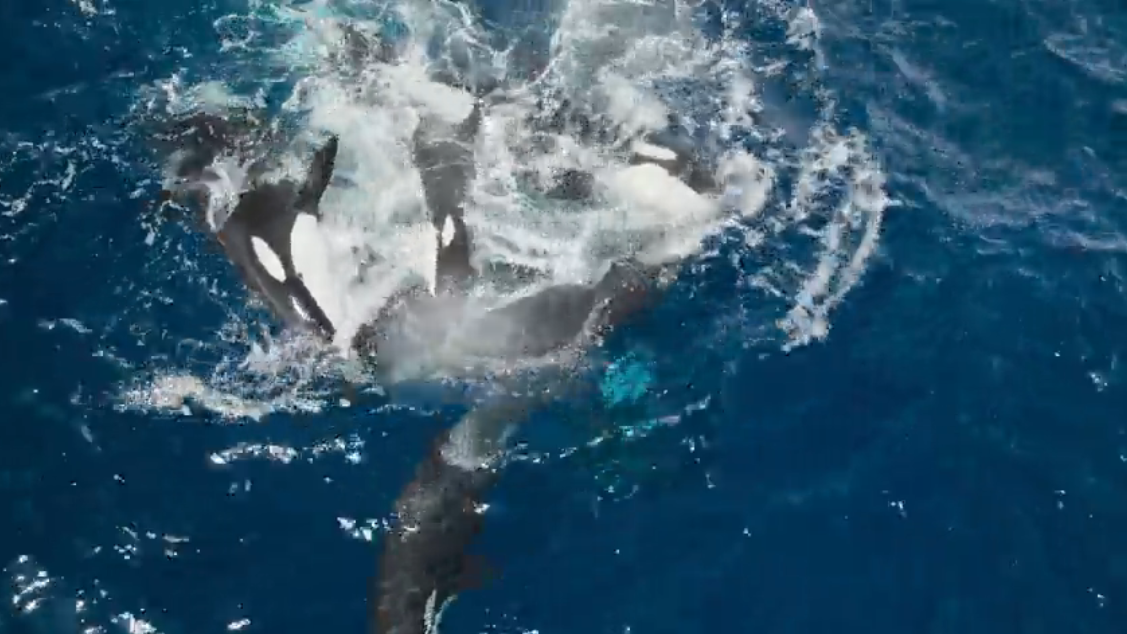Now Reading: Orcas Simulate Drowning Behavior in Unusual Training Display
-
01
Orcas Simulate Drowning Behavior in Unusual Training Display
Orcas Simulate Drowning Behavior in Unusual Training Display

Quick Summary
- New Footage: Orca mothers teach young whales hunting techniques by staging pretend-drowning exercises-a behavior filmed for the first time by the BBC nature series Parenthood.
- Training Simulation: A pod simulates drowning one of its own to replicate hunting strategies against blue whales. The technique involves submerging the blowhole to prevent breathing.
- Hunting Adaptations: The method is later applied while attacking a blue whale, showcasing how orcas strategize to hunt larger prey. Success in killing the whale was not confirmed from this footage.
- Technological Support: Filmmakers used advanced underwater equipment, such as gimbals and tow cameras, off Bremer Bay in Western Australia to document this unprecedented behavior.
- Ecological Insights: Bremer Bay hosts around 200 orcas-the largest congregation in the Southern Hemisphere. Typically, thes orcas prefer squid but occasionally target blue whales either for survival purposes or sheer playfulness, per experts.
- Risky Strategy: Orcas generally opt for weaker targets like sick adult whales or calves as they tire more easily than full-grown healthy whales.
!Image of Orcas practicing pretend-drowning behaviors
Indian Opinion Analysis
This remarkable footage expands our understanding of animal intelligence and behavioral adaptability, offering direct insights into how predator species train their young for survival tasks.For India-home to diverse marine ecosystems along its vast coastline-studies like these highlight critical aspects of ecological balance and species interaction that could inform domestic conservation efforts.
While India lacks large-scale populations of marine predators like orcas, its waters host endangered cetaceans such as dolphins and whales. Understanding apex predator behaviors globally may help improve local marine biodiversity management practices-especially as both climate change and industrial activities continue challenging ocean habitats.
Moreover, these findings resonate with India’s broader push toward leveraging technology (like underwater imaging tools) in wildlife research. Advanced methods could aid conservationists in studying unique Indian aquatic species while minimizing disturbance to natural habitats.

























